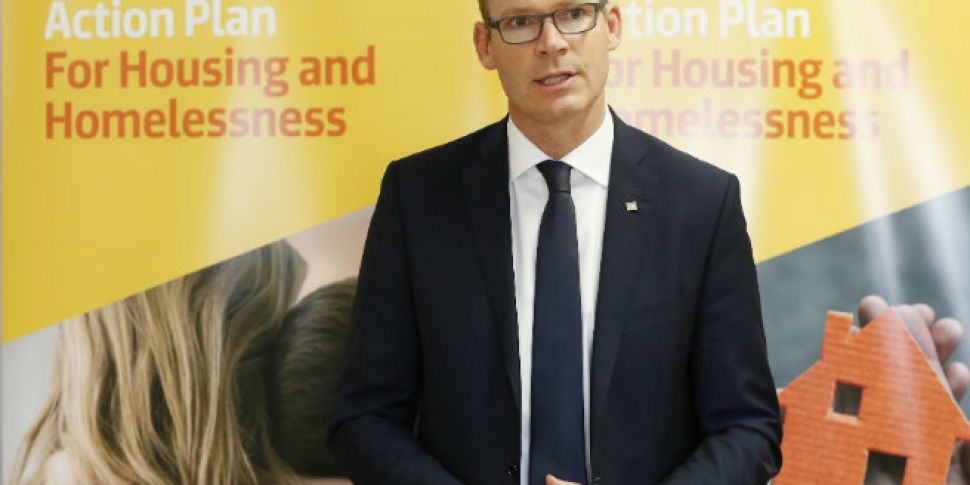The Government yesterday published the Action Plan for Housing and Homelessness - their most significant move yet to try and tackle the housing crisis.
The document outlines dozens of proposals, aimed at kickstarting the housing industry in order to deliver 47,000 social houses over the next six years.
One of the most specific points in the €5.5bn programme is a pledge to put an end to hotels and B&Bs being used for emergency accommodation.
It promises that such 'short-term' accommodation options will only be used in 'very limited circumstances' from mid-2017.
"Our intention is to move the existing group of families out of these hotel arrangements as quickly as possible, and to limit the extent to which such accommodation has to be used for new presentations," the document explains.
Housing Minister Simon Coveney said that while the plan aims to address all aspects of the housing system, the "immediate priority is housing homeless families".
The plan highlights that on a single night in May this year, 622 families in Dublin were accommodated in hotels.
Minister Coveney suggested: "None of us can fail to be moved by the plight of people who are homeless, especially families and children living in hotels, and people who are sleeping on our streets."
What's the plan?
The document outlines how the Government is planning to end the use of hotels and B&Bs over the next 12 months.
It details a rapid-build housing programme which aims to deliver 1,500 housing units by 2018 - including 200 by the end of this year and 800 in 2017.
The Irish Times reports that 22 of this year's 200 units have been delivered so far.
The document says rapid-build units offer "a greater level of stability for homeless families" than hotels while
options for "long-term independent living are identified and secured".
Meanwhile, the Housing Agency will run a programme that will focus on acquiring 1,600 vacant houses across the country - properties which can be used for emergency accommodation.
The Government is also planning to expand its Housing Assistance Payment (HAP) scheme.
The programme, which is being run as a pilot in Dublin, "is designed to transition qualified households from emergency accommodation into private rented tenancies".
The plan commits to creating 550 tenancies by the end of 2016 and 1,200 more tenancies in 2017.
These measures come in addition to plans to keep families outside emergency accommodation in the first place, through measures such as increased rent supplement.
In the cases when families with children do end up in emergency accommodation, the action plan pledges a number of new initiatives and supports - such as access to creché and preschool services; dedicated child support workers; and free public transport for journeys to/from schools.
Is the plan realistic?
Eoin Ó Broin, Sinn Féin’s Spokesperson on Housing, has sounded a note of caution concerning Simon Coveney's pledge to have families out of hotels and B&Bs by mid-2017.
Speaking to Newstalk Lunchtime, Deputy Ó Broin said: “If he achieves it, I’ll be the first person to stand up on the floor of the Dáil and congratulate him for it. But given both the excessive cost of the rapid-build units to date, and the slow pace of delivery, I would be very concerned he is creating a false hope."
Earlier this year, RTÉ reported the cost of one batch of rapid-build homes in Ballymun could reach €243,000 per unit - more than double initial €100,000 estimate.
However, Deputy Ó Broin noted his party will work with the Government to ensure families are moved out of hotels, "because nobody wants the 2,000 children who will tonight be sleeping in emergency accommodation to be sleeping in emergency accommodation this time next year.
“I am concerned there isn’t enough funding, or there isn’t sufficient changes to the approval, procurement and tendering process to deliver the units to get those children out of hotels and B&Bs," he added.
ISPCC Chief Executive Grainia Long welcomed the pledge, but also said action is needed whenever children are in emergency accommodation for any period of time.
She called for contracts between hotels and B&B to have "physical and management standards" - such as Garda vetting and safe play areas - that accommodation providers must meet.
"While emergency accommodation is in use, for any period of time, for any child, it is unacceptable that facilities are not required to meet minimum standards to keep children safe," she argued.
Anti Austerity Alliance TD Ruth Coppinger, meanwhile, suggested that "for the 6,000 people in emergency accommodation, there is little except a promise of another 200 prefabs by end of year.
"800 more of this overpriced and transient housing is promised for next year. The emphasis is on forcing people onto HAP or private rental, potentially miles away from the family's choice of area," she said.
The pledge was, however, 'very much welcomed' by the Ombudsman for Children, Dr Niall Muldoon.
"B&B and hotel accommodation are not suitable for normal family living, and should be a measure of last resort for children and their families," he observed.
He added that his office "will closely monitor the implementation of the plan in this respect".









